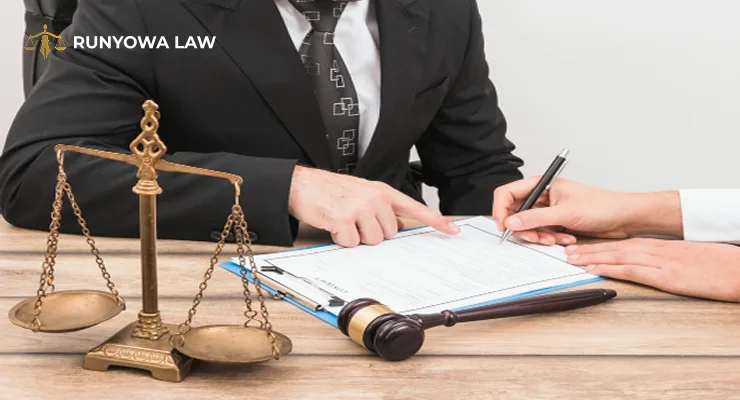Fraud can occur in both criminal and civil contexts, but civil fraud involves different processes, standards of proof, and legal remedies. In civil litigation, fraud arises when one party deceives another, resulting in damages or loss. Understanding civil fraud is crucial for anyone involved in contractual relationships, business transactions, or property disputes. This guide explains what civil fraud is, outlines its legal elements, and explores its consequences and remedies.
1. Definition of Civil Fraud
Civil fraud is a deliberate act of deception intended to secure an unfair or unlawful gain. It typically arises in disputes where one party alleges that another misrepresented or concealed material facts, leading to harm or loss.
In legal terms, civil fraud is a tort—a civil wrong for which a plaintiff may seek damages or other remedies.
Common Areas Where Civil Fraud Arises:
- Business transactions
- Real estate deals
- Insurance claims
- Employment disputes
- Wills and estates
2. Key Legal Elements of Civil Fraud
To succeed in a civil fraud claim, a plaintiff must prove several elements. These can vary slightly by jurisdiction but generally include the following:
a. False Representation
There must be a statement or conduct that misrepresents a material fact. Silence or omission can also qualify if there was a duty to disclose.
b. Knowledge of Falsity (Scienter)
The defendant must have known the statement was false or acted with reckless disregard for its truth.
c. Intent to Deceive
The defendant intended for the plaintiff to rely on the false information.
d. Reliance by the Plaintiff
The plaintiff must have reasonably relied on the false representation.
e. Resulting Damages
The plaintiff must have suffered a loss as a direct result of the reliance.
Each of these elements must be proven on a “balance of probabilities” standard, which is lower than the “beyond a reasonable doubt” standard in criminal law.
3. Civil Fraud vs. Criminal Fraud
a. Purpose
- Civil fraud seeks to compensate the victim
- Criminal fraud aims to punish wrongdoing and deter future acts
b. Legal Process
- Civil fraud is pursued by private individuals or entities
- Criminal fraud is prosecuted by the government
c. Standard of Proof
- Civil: Balance of probabilities
- Criminal: Beyond a reasonable doubt
d. Remedies
- Civil: Damages, rescission, injunction
- Criminal: Fines, imprisonment, restitution
In some cases, the same fraudulent act may lead to both civil and criminal proceedings.
4. Common Types of Civil Fraud
a. Misrepresentation in Contracts
False claims made during the negotiation or execution of a contract.
b. Real Estate Fraud
Involves forging documents, concealing liens, or misrepresenting property values.
c. Insurance Fraud
Providing false information to obtain or deny coverage.
d. Investment Fraud
Includes Ponzi schemes, insider trading, and misleading financial disclosures.
e. Fraudulent Conveyance
Transferring property to avoid creditors.
5. Legal Remedies in Civil Fraud Cases
Victims of civil fraud can pursue a variety of remedies depending on the nature of the fraud.
a. Compensatory Damages
Covers the actual financial loss suffered by the plaintiff.
b. Punitive Damages
Awarded in exceptional cases to punish egregious conduct.
c. Rescission
Cancels the contract and returns the parties to their pre-contract state.
d. Constructive Trust
Court-ordered transfer of property back to the rightful owner.
e. Injunction
Prevents the defendant from engaging in certain conduct or transactions.
6. Proving Civil Fraud in Court
a. Collecting Evidence
- Emails, contracts, financial records
- Witness testimony
- Expert opinions
b. Demonstrating Intent
Proving intent can be challenging and often relies on circumstantial evidence and patterns of behavior.
c. Overcoming Defenses
Common defenses include mistake, lack of intent, or that the plaintiff failed to perform due diligence.
7. Role of Legal Counsel
Given the complexity and seriousness of fraud allegations, legal advice is essential.
a. For Plaintiffs
- Assess claim viability
- Calculate damages
- Develop evidence strategy
b. For Defendants
- Challenge elements of fraud
- Present alternate explanations
- Mitigate potential liability
8. Statute of Limitations for Civil Fraud
In Canada, the limitation period for civil fraud claims generally ranges from 2 to 6 years depending on the province and when the fraud was discovered.
Example:
- Ontario: 2 years from the date the plaintiff knew or ought to have known about the fraud
Some provinces have discovery rules that extend the timeline if fraud is not immediately apparent.
9. Preventing Civil Fraud
a. Contract Clarity
Use detailed, unambiguous contracts and get them reviewed by a lawyer.
b. Due Diligence
Investigate all business partners and verify claims before entering into agreements.
c. Training and Policies
Educate employees about fraud risks and ethical standards.
d. Internal Controls
Implement checks and balances in financial transactions and approvals.
Frequently Asked Questions (FAQs)
Q1. Is civil fraud a criminal offence?
No. Civil fraud is a separate legal action under tort law. However, the same conduct may lead to criminal charges as well.
Q2. Can I sue for civil fraud without a written contract?
Yes. Fraud can occur even without a formal contract if misrepresentation and damages are present.
Q3. What is the burden of proof in civil fraud?
The plaintiff must prove fraud on a balance of probabilities, meaning it is more likely than not that fraud occurred.
Q4. Can a company be liable for civil fraud?
Yes. Businesses can be held liable for fraud committed by their agents or employees within the scope of their duties.
Q5. Can civil fraud lead to asset recovery?
Yes. Remedies like constructive trust and rescission can help victims recover lost assets.
Final Thoughts
Civil fraud is a serious allegation with substantial legal implications. Whether you are a victim seeking compensation or someone defending against a claim, understanding the definition, legal elements, and available remedies is crucial. With the right legal guidance, it is possible to navigate the complexities of civil fraud and protect your rights and interests. Early legal consultation and meticulous documentation are the keys to building or defending a successful case.




